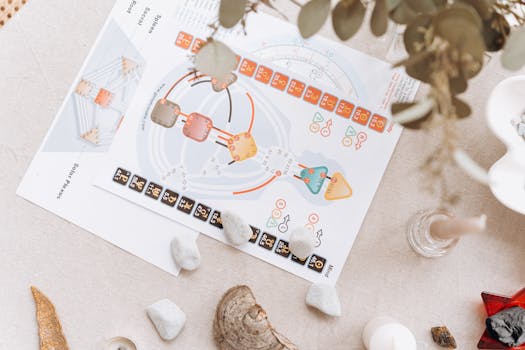
Holistic Approaches to Stress Management: Finding Balance in a Chaotic World
Takeaways
- Holistic stress management focuses on the mind, body, and spirit.
- Mindfulness and meditation can significantly reduce stress levels.
- Physical activity, including yoga and walking, helps alleviate tension.
- Natural remedies like herbal teas and aromatherapy can enhance relaxation.
- Self-care practices are essential for maintaining mental well-being.
Understanding Stress and Its Impact


Stress triggers a biological response that prepares the body to handle challenges. While this response can be beneficial in short bursts, chronic stress leads to numerous health problems, including heart disease, obesity, and mental health disorders. This is where holistic approaches come into play, offering comprehensive strategies that address not just the symptoms, but also the underlying causes of stress.
Mindfulness and Meditation

Meditation, a key component of mindfulness, allows individuals to calm their minds and focus on their breath or a specific thought. Research shows that regular meditation can lead to structural changes in the brain, enhancing areas associated with emotional regulation and decreasing those related to stress responses. Even just a few minutes of meditation each day can yield substantial benefits.
Incorporating mindfulness techniques into your daily routine can be as simple as taking a few deep breaths before a meeting or practicing gratitude by reflecting on what you appreciate in your life. By anchoring yourself in the present, you can break the cycle of stress and regain a sense of control.
Physical Activity and Movement

Yoga, in particular, combines physical movement with breath control and meditation, making it a powerful practice for stress relief. Various styles of yoga, such as Hatha, Vinyasa, and Restorative, cater to different preferences and fitness levels, allowing everyone to find a practice that suits them. Regular yoga practice promotes flexibility, strength, and relaxation, helping to balance the body and mind.
Additionally, engaging in outdoor activities, such as hiking or gardening, can connect you with nature and provide a refreshing perspective. Nature has a calming effect on the mind, reducing stress levels and promoting a sense of peace.
Natural Remedies and Self-Care Practices

Self-care practices are vital for maintaining mental health. Taking time for yourself, setting boundaries, and engaging in activities that bring you joy are essential components of a holistic approach to stress management. This could include reading a book, taking a warm bath, or spending quality time with loved ones.
Additionally, maintaining a balanced diet rich in whole foods can support your body’s ability to cope with stress. Nutrient-dense foods provide the vitamins and minerals necessary for optimal brain function and emotional stability.
Conclusion







